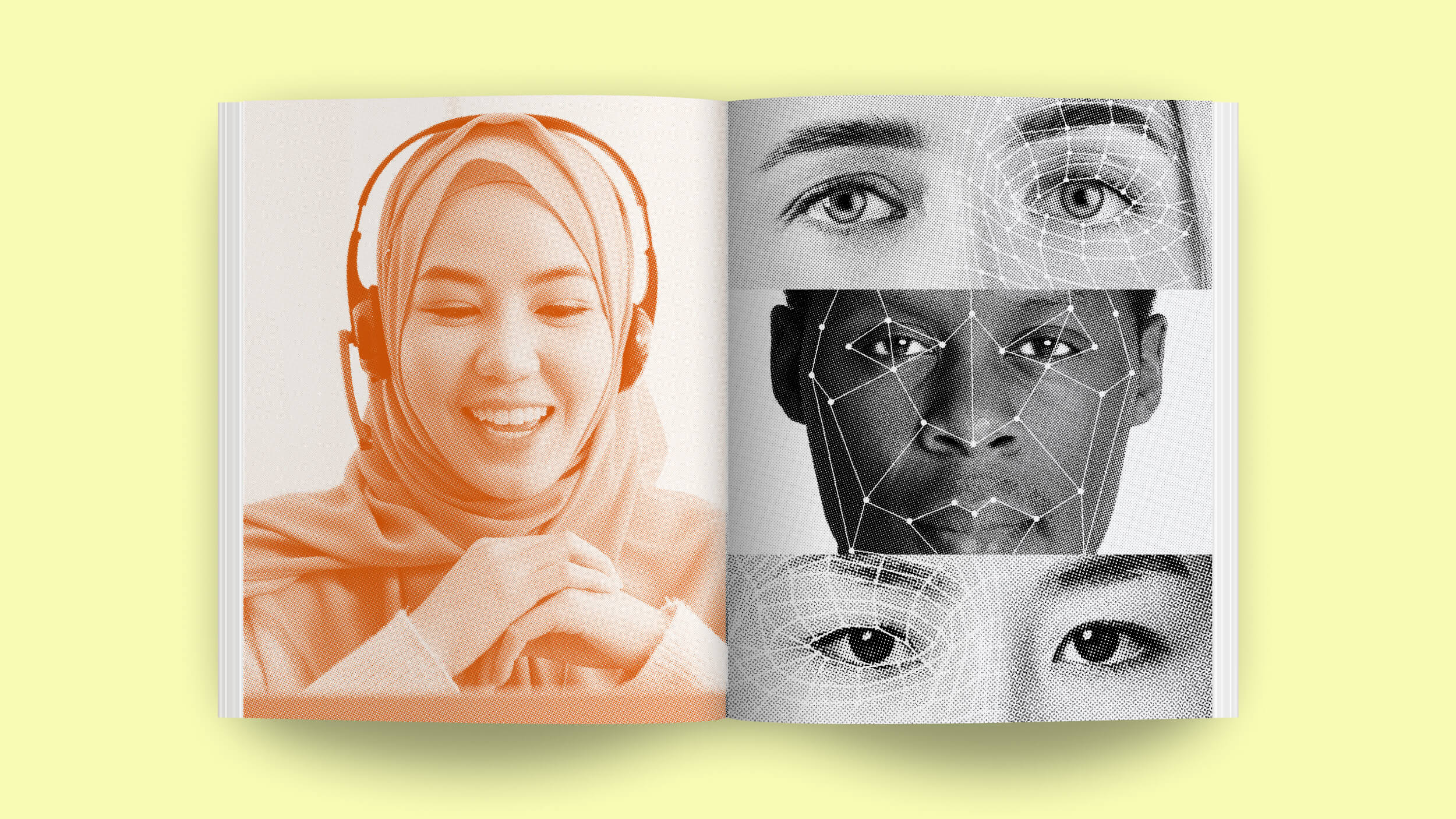Being thrust into the spotlight is tough to deal with as an adult – but it’s even tougher for a child who is still trying to understand their place in the world. That was reality for Carrie Berk, who co-authored a series of children’s books alongside her mother in 2012 when she was just 8 years old.
Fast-forward to 2024 and she’s now a 21-year-old journalist and social media influencer with a following of almost 4 million on TikTok.
We spoke to the New Yorker candidly about the pressures and consequences of young success, touching on everything from unworthiness to trolling, and how she looked inward to change her outlook on life.
In her mother’s shadow
Berk has had three novel series published (Fashion Academy, Ask Emma and The Cupcake Club), with the latter selling over 300,000 books globally. But rather than fill her with confidence, these early achievements filled her with a sense of unworthiness.
“A personal insecurity I have is that an 8-year-old cannot publish a book by herself; she needs help,” she says. “That negative voice in my head would be saying, ‘You’re nothing without your mom behind you…you’re never going to have your own voice as a writer…you’re always going to be in her shadow.’’’
But Berk refused to let this inner critic get the better of her writing skills, proving it wrong by authoring her very own solo book: My Real-Life Rom-Com: How to Build Confidence and Write Your Own Relationship Rules, a coming-of-age guide for all those needing authentic advice on love and heartbreak.
“If I’m ever doubting myself, I just look at my book and my byline,” she says. “This was something that I did by myself and I should be proud of it. People can think what they want to think. It’s about what you think about yourself that matters.”
Out came the trolls
Living through a global pandemic significantly affected the mental health of adults and children, and the National Institute of Health has stated that nearly half of Americans surveyed reported symptoms of an anxiety or depressive disorder. Berk was unfortunately a part of the unlucky half.
“It was the middle of the pandemic, so I was already dealing with a lot. I was class of 2020; no prom, no graduation. It was a really hard year for me,” she explains.
During this time, her social media presence skyrocketed. But despite finding an engaged audience that loved her lighthearted lifestyle content, there were a few hellbent on bringing her down. One notable troll, Berk remembers, was a 12-year-old who repeatedly told her to “DIE” via direct messaging.
Berk had had no prior dealings with the physical symptoms of anxiety (she even thought it could’ve been COVID-19), so she was surprised when she started experiencing them intensely. “It became so debilitating,” she says. “My heart was constantly racing, I couldn’t catch my breath, I wasn’t hungry.” It was only when talking to her mother and a therapist that she discovered it was the side effects of anxiety and OCD that she was dealing with.
Finding purpose in pain
The turning point for Berk was realizing that anxiety isn’t something you can cure, it’s something you manage. “The more that time went on, the more I realized that I could deal with my anxiety and that it would change and manifest itself in different ways.”
She’s now trying to use her disorder for good. The last chapter of her book is all about self-love and her journey with anxiety, letting others know they are not alone. “I took something painful and turned it into art that could help people,” she says. “Once I hit this low in my life and I realized that I could love myself even in this dark place, I knew I could extend love towards others.”
We interviewed Carrie Berk for Question Your Perception Box, a Big Think interview series created in partnership with Unlikely Collaborators. As a creative non-profit organization, they’re on a mission to help people challenge their perceptions and expand their thinking. Often that growth can start with just a single unlikely question that makes you rethink your convictions and adjust your vantage point. Watch Berk’s full interview above, and visit Perception Box to see more in this series.
CARRIE BERK: Why is it so hard? Oh! I did it. Right now, when I opened that thing.
Hi, my name is Carrie Berk. I am an author, journalist, and social media influencer. I have almost 3.9 million followers on TikTok, and I just came out with my solo debut book, "My Real-Life Rom-Com."
Hmm. So I was sitting on the couch one night just eating a cup of cereal, watching TV, and just suddenly could not catch my breath. It was the middle of the pandemic. Class of 2020, no prom, no graduation. It was a really hard year for me to begin with. And on top of that, I just had this sudden internet fame, and I really could see how cruel people could be. I mean, I had 12-year-olds sending me death threats in my DMs.
For a while, to me, anxiety was just, you know, the butterfly sensation you get before a test, or I used to be a performer, I would get those butterflies before I got on stage. But I realized that it was so much more than that. It can be something so painful and debilitating. My heart was constantly racing. I couldn't catch my breath. I wasn't hungry. I had this constant track of intrusive thoughts in my brain that I could not escape.
I had been searching for a light switch that would just turn off the anxiety, and I think it was that moment, like six months into therapy, when I just realized I wasn't gonna get better. The only thing that was gonna change was the way I responded to it. And like, don't get me wrong, I'm still learning about anxiety and OCD as new symptoms arise, but now I understand it more than I used to.
I take things personally all the time. I'm so oversensitive, I overreact to everything. I'm just calling myself out right now. It's so bad. I just overthink every single situation.
So I started writing when I was eight years old. I've written 21 children's books with my mom. A personal insecurity is that an 8-year-old cannot publish and write a book by herself, like she needs help. That negative voice in my head would be saying, "You're nothing without your mom behind you. You're never gonna have your own voice as a writer. You're always gonna be in her shadow." All of those voices often get in the way.
I mean, I'm very grateful for those experiences I had with my mom, but at the end of the day, I am not an 8-year-old who writes about cupcakes anymore. I'm a 20-year-old young woman, and I'm experiencing this crazy world that is adulting. I talk very openly about my first heartbreak, when I find out he's breaking up with me- and it almost felt like a form of grief. I just could not stop sobbing. And it sounds silly because I was 16, but at the time it felt so real and heartbreaking. I had never gone through something that deep.
When we talk about our struggles in our authentic manner, that's what can really help people and resonate with them because then they're able to relate to you and level with you. What was that actual moment like when I got my heart broken? What was it like when I dropped to my knees and my surroundings went blurry and my fingers went numb? That's a feeling that a lot of 16-year-olds who have been in love will be able to relate to.
Once I wrote my book, showed myself, proved to myself that I am good alone as a writer. I realized I didn't need to... I realized I didn't need to... I realized I didn't need to prove anything to anyone. And although I love my mom and I respect her and her work that she does, I'm good alone too.





